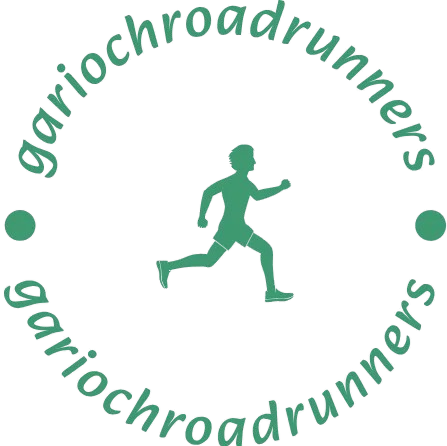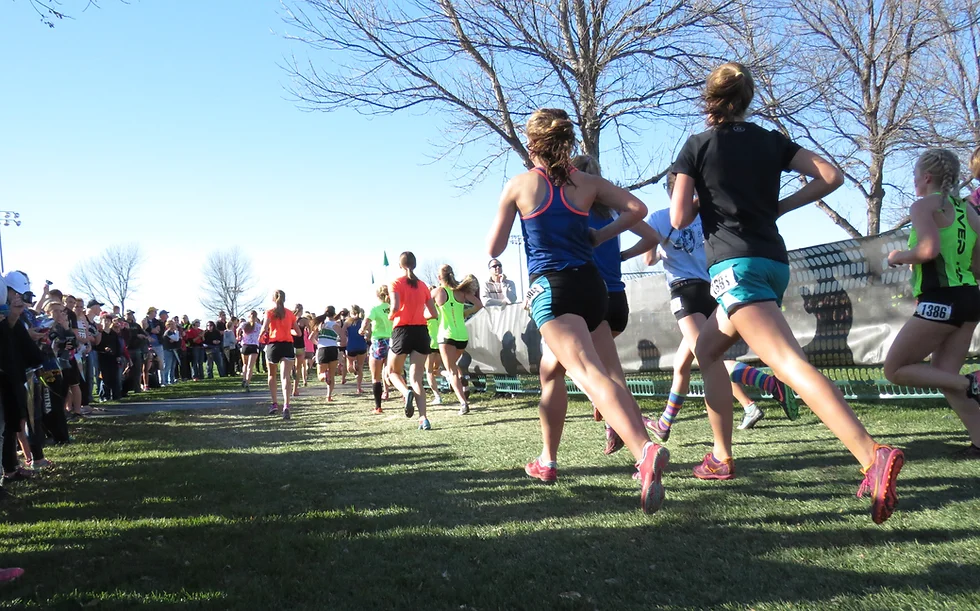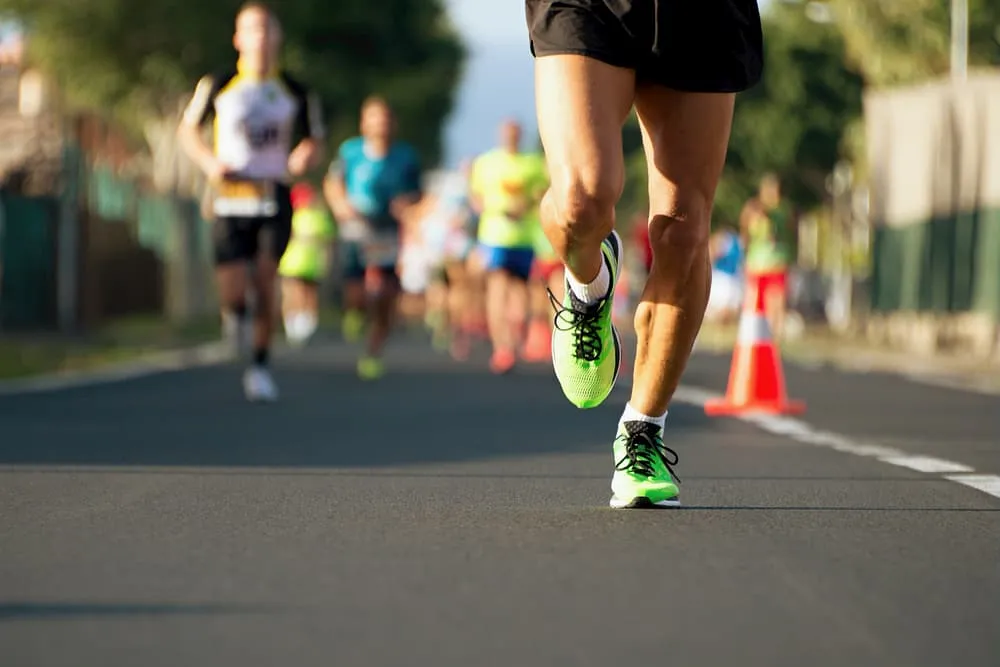Marathon running is not only a test of physical endurance but also a challenge for your nutritional strategy. Proper fueling before, during, and after the race is crucial to achieving peak performance and avoiding mid-race fatigue. Without the right nutrition, even the most well-trained runners can struggle during the 26.2-mile journey. In this post, we’ll dive into the best nutrition strategies to help marathon runners fuel effectively, maintain energy, and recover faster.

1. Pre-Race Nutrition: Carbohydrate Loading
What you eat in the days leading up to the marathon plays a significant role in your energy reserves. Carbohydrates are the primary source of fuel for long-distance runners, so maximizing glycogen stores is essential. This process, known as carbohydrate loading, can help you maintain energy throughout the race.
Key Pre-Race Nutrition Tips:
- Carb-loading: Start increasing your carbohydrate intake 3-4 days before the race. Aim for about 7-10 grams of carbohydrates per kilogram of body weight. Focus on complex carbohydrates like pasta, rice, bread, and starchy vegetables.
- Avoid fats and fibers: While it’s important to eat carbs, you should avoid excessive fats and fiber close to race day. These can cause digestive issues during the marathon.
- Hydrate well: In the days leading up to race day, ensure that you’re well-hydrated. Aim to drink water consistently, but don’t overdo it to avoid bloating.
Eating the right foods in the days before your race will help you build up sufficient glycogen stores for the marathon. A well-fueled body can maintain energy and reduce the chances of hitting the “wall” later in the race.
2. Race Day Nutrition: Fueling During the Marathon
The marathon is a long journey, and you’ll need to refuel during the race to sustain your energy levels. Knowing when and how to eat and drink can help you avoid fatigue and keep your body operating at its best.
In-Race Nutrition Strategies:
- Hydration: Start by staying hydrated early in the race. Drink small sips of water at regular intervals to prevent dehydration. Some races provide sports drinks, which contain electrolytes and carbohydrates to keep your energy levels stable.
- Carb intake: Aim to consume 30-60 grams of carbohydrates per hour during the race, typically in the form of gels, chews, or sports drinks. Test your fueling strategy during training to determine what works best for you.
- Avoid over-consumption: While it’s important to fuel regularly, don’t overeat. Too many carbs at once can lead to digestive discomfort or bloating. Stick to small, manageable portions every 30-45 minutes.
- Electrolytes: Maintain your electrolyte balance by using products that contain sodium, potassium, and magnesium. These help prevent muscle cramps and maintain fluid balance.
Fueling during the race is all about maintaining your energy levels and preventing a bonk or hitting the wall. By consuming the right amount of carbohydrates and electrolytes, you can keep running strong for the entire marathon.
3. Post-Race Nutrition: Recovery and Muscle Repair
After crossing the finish line, your body will need time and proper nutrition to recover from the exertion. Replenishing glycogen stores, repairing muscles, and rehydrating are the key aspects of post-race nutrition.
Post-Race Nutrition Tips:
- Replenish glycogen: Within 30-60 minutes of finishing the race, eat a meal or snack that contains carbohydrates to replenish your glycogen stores. Good options include fruit, rice, or a sports recovery drink.
- Protein for muscle recovery: Include protein in your post-race meal to aid muscle repair. Aim for about 10-20 grams of protein within the first hour after the race. Foods like lean meats, yogurt, or a protein shake are excellent sources.
- Hydrate with electrolytes: Rehydrate with water, coconut water, or a sports drink containing electrolytes. This helps to restore your body’s fluid balance and prevent dehydration.
- Avoid junk food: While it may be tempting to indulge in fast food or sugary treats after the race, opt for nutrient-dense options that support your recovery, like lean protein, whole grains, and fresh fruits and vegetables.
Eating the right foods after the marathon not only aids in recovery but can also reduce soreness and help you feel more energetic in the days following the race.
Training and Recovery
After a long run, recovery and mental relaxation are crucial for any runner. Finding diverse ways to unwind can be just as important as the training itself, and some members enjoy exploring online entertainment like the ones that offer top casino bonuses.
4. The Role of Fats in Marathon Nutrition
While carbohydrates are the primary fuel source for marathon runners, fats also play an important role in long-distance endurance. They provide sustained energy for longer races, especially once your glycogen stores begin to deplete.
Healthy Fat Sources:
- Avocados: Packed with healthy monounsaturated fats, avocados provide slow-burning energy and aid in nutrient absorption.
- Nuts and seeds: These are great sources of omega-3 fatty acids, which help reduce inflammation and muscle soreness.
- Olive oil: Use olive oil for cooking or as a salad dressing for added heart-healthy fats.
Incorporating healthy fats into your diet during training can help improve overall endurance and provide steady energy during the marathon. However, avoid high-fat meals immediately before or during the race, as they can cause sluggishness.
5. Timing Your Meals for Optimal Performance
Meal timing is just as important as the types of foods you eat. Proper meal timing ensures that your body has enough energy without feeling weighed down by a full stomach.
Pre-Race Meal Timing:
- Meal timing: Have your pre-race meal about 3-4 hours before the race starts. The meal should be high in carbohydrates, moderate in protein, and low in fats and fiber. Avoid foods that may upset your stomach or cause bloating.
- Snacks: If you need a snack closer to the race start (1-2 hours before), choose easily digestible carbs like a banana, toast, or an energy bar.
During the Race:
- Fuel early: Start fueling within the first 30 minutes of the race. This helps keep your blood sugar levels stable and prevents a late-race energy crash.
- Consistency: Maintain regular fueling throughout the race, taking small, manageable amounts of carbs, hydration, and electrolytes every 30-45 minutes.
Post-Race Meal Timing:
- Recovery window: The first 30-60 minutes after the marathon are critical for replenishing glycogen stores and initiating muscle repair. Eat a balanced meal within this window to maximize recovery.
- Ongoing recovery: In the hours following the race, continue to hydrate and eat small, balanced meals to continue muscle recovery and rehydrate properly.
By timing your meals correctly, you’ll maximize your energy levels during the race and speed up recovery afterward.
6. Common Marathon Nutrition Mistakes to Avoid
Even the best training plans can be derailed by poor nutrition choices. Here are some common mistakes marathon runners make and how to avoid them:
Mistakes to Watch Out For:
- Skipping breakfast on race day: Fasting on race morning can leave you low on energy. Always eat a light meal 3-4 hours before the race.
- Trying new foods or drinks on race day: Stick to what you’ve practiced during training. New foods or drinks can upset your stomach or cause digestive issues.
- Dehydrating during the race: Hydration is key, but drinking too much water without electrolytes can lead to hyponatremia (low sodium levels). Be mindful of electrolyte balance.
- Underfueling during the race: Many runners underestimate their carb needs during the marathon. Consistent fueling is crucial to prevent energy crashes.
Avoiding these mistakes ensures that you’re properly fueled and ready to tackle the marathon with optimal energy.
Conclusion
Nutrition is a critical component of marathon training and race day performance. From carbohydrate loading before the race to fueling throughout the marathon and focusing on recovery afterward, every aspect of your nutrition strategy plays a role in your success. By implementing these nutrition tips, you’ll be better prepared to run your best race, avoid fatigue, and recover quickly. Remember, fueling properly is not just about performance—it’s about ensuring that your body can handle the physical demands of running 26.2 miles. Stay fueled, stay hydrated, and enjoy the journey to the finish line!











